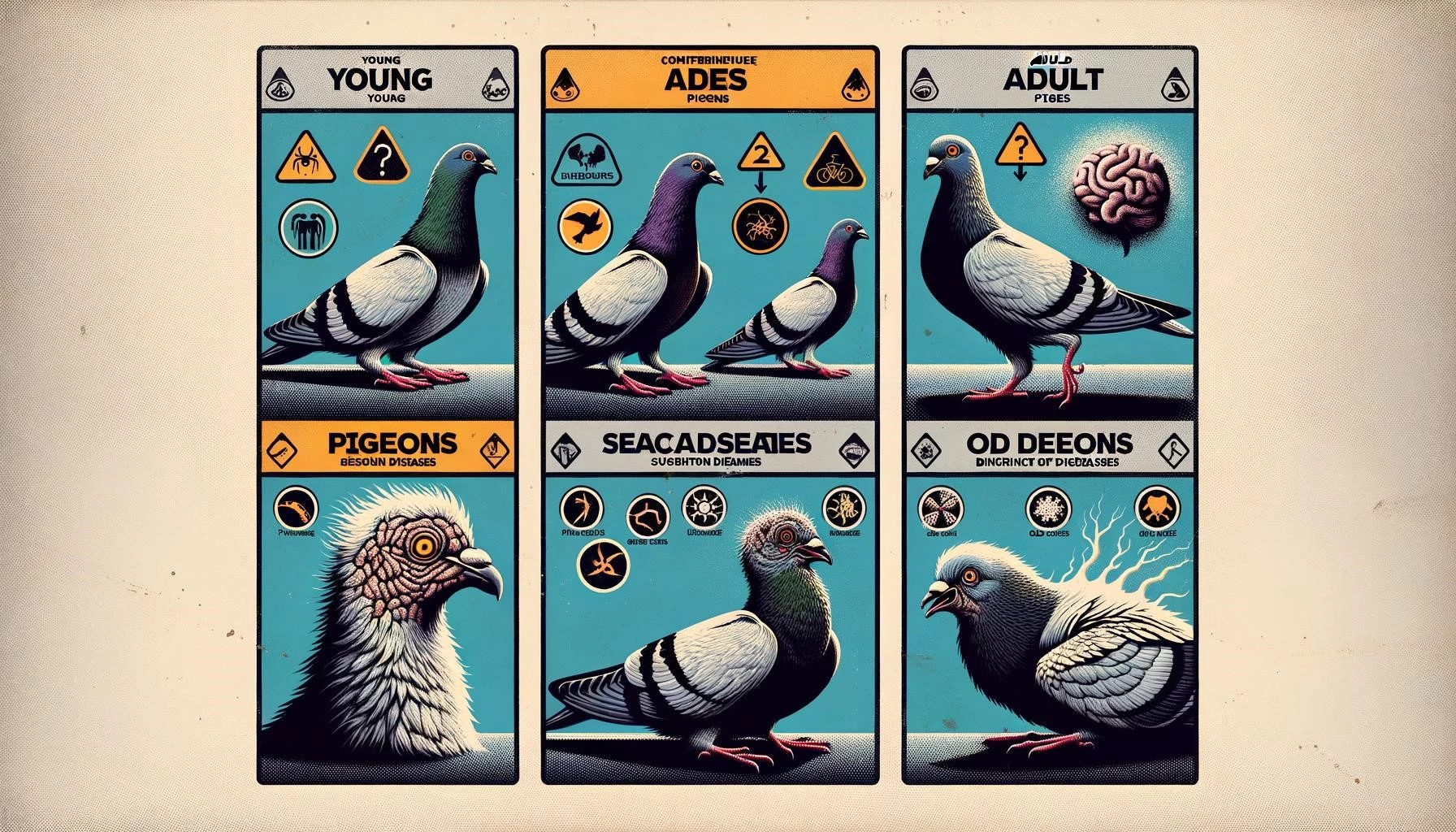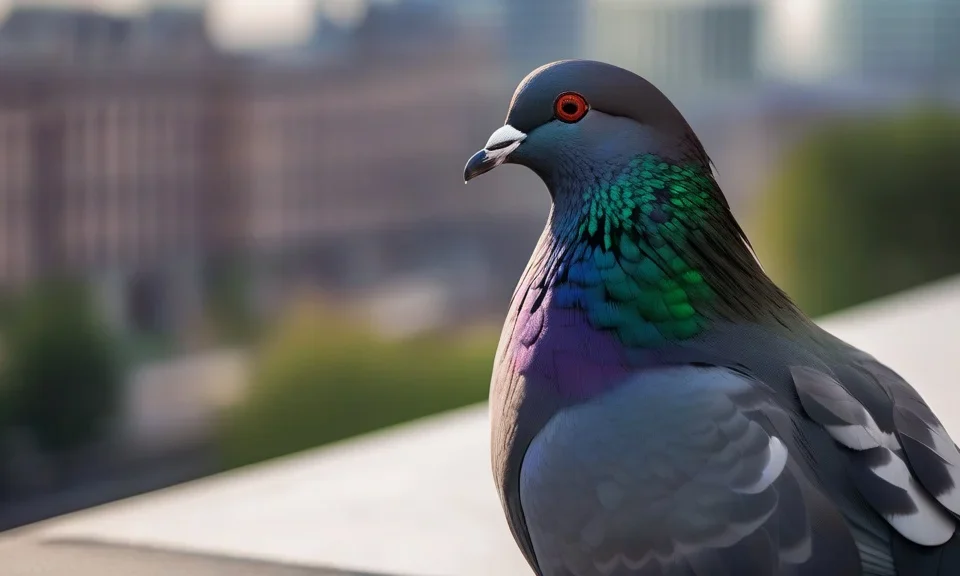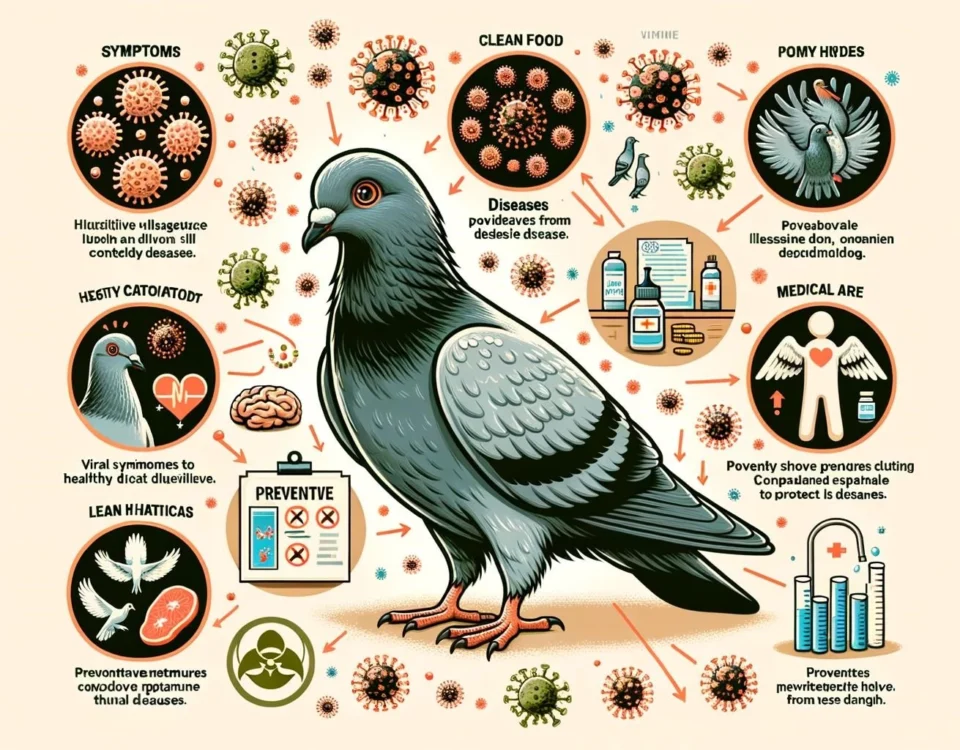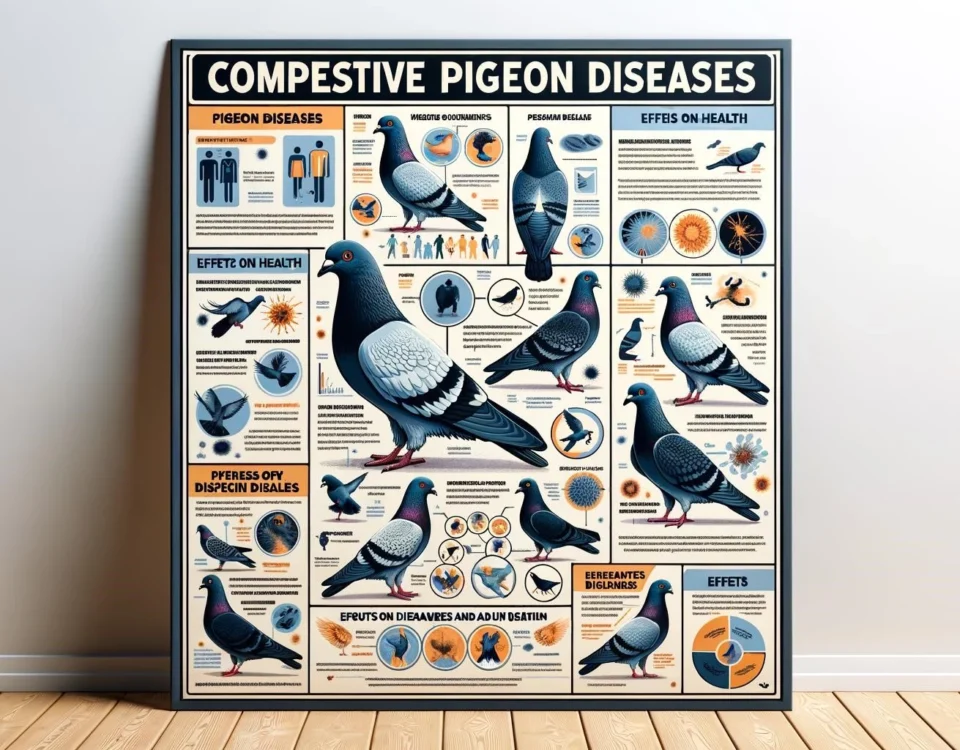Pigeons, like other animals, can be susceptible to various diseases that can affect their health and well-being. The age of a pigeon can play a significant role in its vulnerability to certain diseases. Understanding the relationship between pigeon diseases and age is crucial for bird owners to provide appropriate care and take preventive measures to keep their feathered friends healthy.
Key Takeaways
- Infections such as Mycoplasma and adenovirus are common in pigeons, particularly affecting young birds between 3-4 months of age.
- Pigeon aviadenovirus A (PiAdVA) and pigeon circovirus (PiCV) are associated with immunosuppression syndrome in pigeons under 1 year old.
- Pigeons can suffer from a range of diseases, including paratyphoid, paramyxovirus, canker, cocci, worms, adeno-coli syndrome, ornithosis, and candida.
- Zoonotic diseases associated with pigeon droppings include Cryptococcosis, Histoplasmosis, and Psittacosis.
- Pigeon diseases can be effectively treated with appropriate veterinary care and preventive measures, such as vaccination and maintaining clean living conditions.
Common Pigeon Diseases in Different Age Groups
There are several diseases that pigeons can be prone to at different stages of their life. Some diseases are more prevalent in young birds, while others may affect older pigeons. Here are some common pigeon diseases and their association with different age groups:
Infections in Young Pigeons (Under 1 Year Old)
Young pigeons, especially those under 1 year old, are more susceptible to viral infections that can cause high morbidity and mortality. Pigeon aviadenovirus A (PiAdVA) and pigeon circovirus (PiCV) are two viral infections associated with an immunosuppression syndrome similar to Young Pigeon Disease Syndrome (YPDS). These infections can cause respiratory problems, diarrhea, weight loss, and overall weakness in young pigeons.
Paratyphoid and Paramyxovirus in Pigeons
Paratyphoid, caused by Salmonella bacteria, is a significant bacterial disease that can affect pigeons of all ages. It can be caused by unhygienic conditions, contaminated feed, or the introduction of sick birds into a loft. Young pigeons may be more susceptible to paratyphoid if they haven’t developed a strong immune system yet.
Paramyxovirus is another common viral infection that affects pigeons of all ages. However, respiratory infections caused by paramyxovirus can make it difficult for a bird to breathe and fly, which can be particularly challenging for young pigeons learning to navigate their surroundings.
Canker and Worms in Pigeons
Canker, also known as trichomoniasis, is a fungal infection that affects pigeons’ respiratory systems and digestive tracts. It can cause symptoms such as coughing, weight loss, eye discharge, and difficulty breathing. Both young and old pigeons can be affected by canker, but regular treatment and preventive measures can help manage the disease.
Pigeons can also suffer from various worm infestations, such as roundworms and tapeworms, which can affect their overall health and vitality. Worm infestations can cause weight loss, diarrhea, and other digestive issues in pigeons of all ages.
Zoonotic Diseases and Pigeon Droppings
Pigeon droppings can pose a health risk to humans, as they can harbor zoonotic diseases. Cryptococcosis, Histoplasmosis, and Psittacosis are some of the diseases associated with pigeon droppings. These diseases can be transmitted to humans through inhalation of fungal spores or contact with contaminated surfaces. Individuals with compromised immune systems are particularly vulnerable.
It is important to maintain proper hygiene and cleanliness when handling pigeons, especially their droppings and feathers, to minimize the risk of zoonotic diseases.
Prevention and Treatment of Pigeon Diseases
Vaccination
Vaccination is an essential preventive measure to protect pigeons from various diseases. It is recommended to vaccinate all pigeons in a loft, following the specific guidelines provided by the vaccine manufacturer. Young pigeons are often given their first vaccine dose at around 4 weeks of age, with a second dose administered four weeks later. An annual booster vaccination is highly recommended to maintain loft protection.
Veterinary Care
If a pigeon shows signs of illness or disease, it is essential to seek veterinary care from professionals experienced in avian medicine. A veterinarian will be able to diagnose the specific disease and provide appropriate treatment options. Regular check-ups and maintaining good hygiene practices can help prevent and detect diseases early.
Hygiene and Cleanliness
Maintaining clean living conditions, including regularly cleaning the loft and feeding areas, can help reduce the risk of disease transmission among pigeons. Proper sanitation measures can also minimize the presence of disease-causing agents in the environment.
Quarantine and Biosecurity
When introducing new pigeons into a loft, it is essential to quarantine them and have them checked by a veterinarian to ensure they are healthy and free from diseases. Implementing good biosecurity measures, such as limiting contact between birds from different lofts and restricting access to wild birds, can help prevent the spread of diseases.
Conclusion
Pigeons can be susceptible to various diseases at different stages of their lives. Young pigeons, in particular, may be more vulnerable to certain viral and bacterial infections due to their developing immune systems. It is crucial for pigeon owners to be aware of common diseases, understand their relationship with age, and take appropriate preventive measures, including vaccination, good hygiene practices, and regular veterinary care. By maintaining a clean and healthy environment, pigeon owners can help ensure the overall well-being and longevity of their feathered friends.








